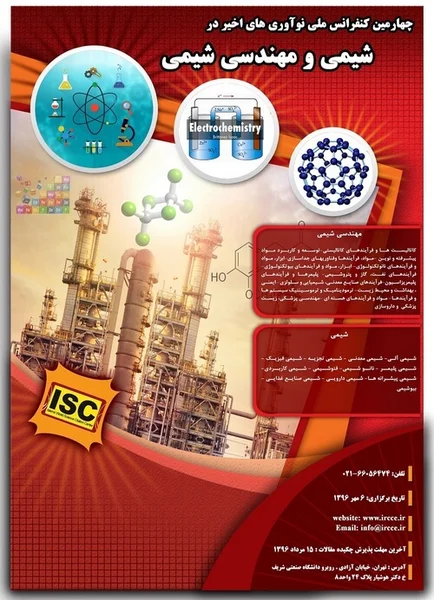-
treatment of synthetic wastewater containing heavy metal ions (cadmium, cobalt and lead) by nanofiltration
جزئیات بیشتر مقاله- تاریخ ارائه: 1396/07/09
- تاریخ انتشار در تی پی بین: 1396/07/09
- تعداد بازدید: 379
- تعداد پرسش و پاسخ ها: 0
- شماره تماس دبیرخانه رویداد: -
drinking water quality is very important for human health. small amounts of hazardous contaminants are strictly forbidden. due to the discharge of large amounts of metal-contaminated wastewater, industries bearing heavy metals, such as cd, cr, co, cu, ni, as, pb, and zn, are the most hazardous among the chemical-intensive industries. the removal of heavy metals from wastewater has significant importance due to their high toxicity and tendency to accumulate in body tissues. in the present work, performance of a nanofiltration (nf) polyamide membrane has been studied to separate cadmium, cobalt and lead ions from synthetic wastewater solutions at different operating conditions. rejection experiments were conducted with cd(no3)2, co(no3)2 and pb(no3)2 in single-salt solutions. the effect of feed ph, trans-membrane pressure and metal concentration on the ion separation and permeate flux was explored. the maximum observed solute rejection of cd2+, co2+ and pb2+ ions were 98.12%, 98.60% and 96.24%, respectively. it is observed that the ion rejection decreases with increase in feed ph and slightly increases with rise in feed concentration. also, it is found that the metal rejection and the permeate flux, slightly reduces and significantly increases respectively, when the trans-membrane pressure increases. the low level of the ions concentration in permeate implies that water with good quality could be reclaimed for further reuse.
مقالات جدیدترین رویدادها
-
استفاده از تحلیل اهمیت-عملکرد در ارائه الگوی مدیریت خلاقیت سازمانی و ارائه راهکار جهت بهبود
-
بررسی تاثیر ارزش وجوه نقد مازاد بر ساختار سرمایه شرکت های پذیرفته شده در بورس اوراق بهادار تهران
-
بررسی تأثیر سطح افشای ریسک بر قرارداد بدهی شرکت های پذیرفته شده در بورس اوراق بهادار تهران
-
بررسی تأثیر رتبه بندی اعتباری مبتنی بر مدل امتیاز بازار نوظهور بر نقد شوندگی سهام با تأکید بر خصوصی سازی شرکت ها
-
تأثیر آمیخته بازاریابی پوشاک ایرانی بر تصویر ذهنی مشتری پوشاک ایرانی (هاکوپیان)
-
روش اجرای پل بتنی دال و تیر مطالعه موردی مراحل اجرای پل ارتباطی سرریز سد کرخه
-
شبیه سازی نحوه پخش و انتشار ترکیبات آلی فرار خروجی از فلرهای پالایشگاه های پارس جنوبی با نرم افزار aermod
-
بررسی و مقایسه رویکردهای یادگیری مورد استفاده اساتید در دروس معماری به منظور بهبود فرایند آموزش در معماری
-
ارزیابی و سنجش میزان عزت نفس و پیشرفت تحصیلی متاثر از برنامه های آموزشی مختلف در مدارس شهرستان پیرانشهر
-
راهکارهای افزایش بهبود جمع و تفریق با کمک بازی در یکی از دانش اموزان کلاس دوم ابتدایی مدرسه الزهرا
مقالات جدیدترین ژورنال ها
-
مدیریت و بررسی افسردگی دانش آموزان دختر مقطع متوسطه دوم در دروان کرونا در شهرستان دزفول
-
مدیریت و بررسی خرد سیاسی در اندیشه ی فردوسی در ادب ایران
-
واکاوی و مدیریت توصیفی قلمدان(جاکلیدی)ضریح در موزه آستان قدس رضوی
-
بررسی تاثیر خلاقیت، دانش و انگیزه کارکنان بر پیشنهادات نوآورانه کارکنان ( مورد مطالعه: هتل های 3 و 4 ستاره استان کرمان)
-
بررسی تاثیر کیفیت سیستم های اطلاعاتی بر تصمیم گیری موفق در شرکتهای تولیدی استان اصفهان (مورد مطالعه: مدیران شرکتهای تولیدی استان اصفهان)
-
پیش بینی دلزدگی زناشویی بر مبنای ذهن آگاهی، بهزیستی روانشناختی و انعطاف پذیری شناختی زوجین مراجعه کننده به مراکز مشاوره
-
بررسی و نقد ادله کنترل جمعیت از دیدگاه فتاوای فقهای معاصر
-
بررسی ارتباطات اثربخش و سکوت سازمانی مطالعه موردی: سازمان آب و فاضلاب شهری خراسان جنوبی
-
بررسی رابطه بین اقدامات مدیریت منابع انسانی با عملکرد سازمانی با توجه به نقش میانجی مدیریت دانش وتعدیلی فرهنگ سازمانی کارکنان شبکه بهداشت و درمان در استان گلستان
-
بازآفرینی فرهنگی شهر با تکیه بر خلق فضای پاتوق شهری نمونه موردی: شهر اردبیل




سوال خود را در مورد این مقاله مطرح نمایید :